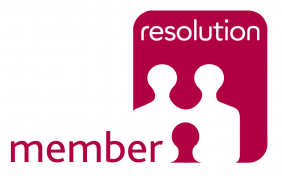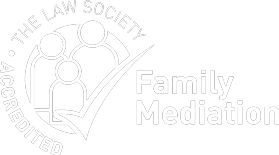Time for a spotlight on family mediation
It’s Family Mediation Week. Today, through to Friday 20th, those with a keen interest in better resolutions for separated families will be promoting the benefits of this alternative to the court. It’s an important way of raising awareness about options.
If you follow me and my team at Thomas Mansfield, you’ll know this is actually a big part of what we do all year round. Mediation means something to us, as it does to clients who embark on it (sometimes sceptically) and emerge in one, positive piece. Mediation works. It’s not the only way of dividing assets after a separation, or of sorting out how a child’s time would be best shared with parents. But it’s by far the preferable route, where the alternative is having a court decide these things for you.
What does mediation offer that court doesn’t? I think, above all, mediation is set up to give separated couples a way of leaving or moving on with their relationship on the best possible terms. Imagine a court hearing. There are two distinct ‘sides’. There’s formality. There are lawyers, orders, rules. Even if it wanted to be (and judges do go to great lengths to try to put parties at ease), the court just isn’t made for the type of discussion, cooperation and mutual resolution that mediation can provide. And while court remains vital in situations in which two people can’t agree an outcome, or where hostility is heightened to such an extent that mediation just couldn’t work, it’s something I encourage clients to avoid wherever possible.
Mediation can be quicker. It can be less expensive (lawyers are usually far less involved). It can also lead to arrangements that will stand the test of time because they have been worked through and agreed between the people that will live them, rather than having been imposed by a judge who will not. And because the mediation process gets people talking, it can even be the catalyst for a new type of relationship – one in which the two halves of a separated couple see each other’s perspective and behave more amicably towards one another than might have been the case had a courtroom battle been involved.
My experience of mediation as a family lawyer led to me becoming a mediator. I’m in the privileged position of helping families through the practicalities and the emotional challenges of separation and beyond – sometimes through the courts, sometimes through mediation or another type of alternative dispute resolution. And while it would be great if every family issue could benefit from the positive things mediation can provide, I know that what suits one family may not suit another – where there is domestic violence, for example, the court will always need to be involved. So the really important thing – rather than focusing on what would be the ‘right’ and ‘wrong’ way of resolving a family issue – is to go with the route that works for you. And if there’s a chance that mediation could be it, I’d say: go for it.
If you’re going through a separation or another family issue and would like to find out more about the legal process that should follow (including the possibility of mediation), contact Susi Gillespie or call our Family Law team on 020 3811 2894.











